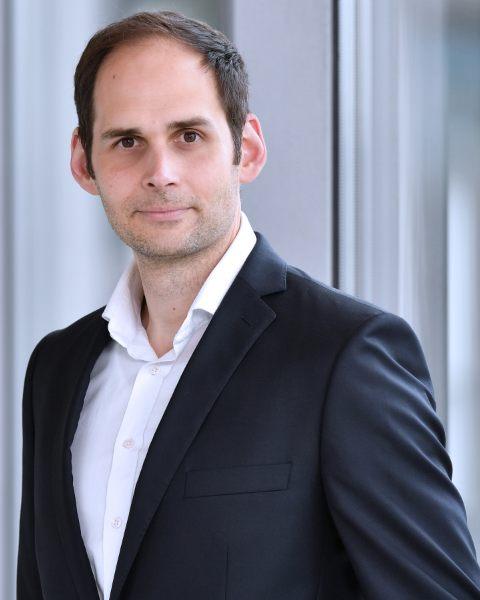


Timo Tauber, Head of M&A at Viessmann Group, the private German manufacturer of heating, industrial, and refrigeration systems, speaks to Acuris Capital Intelligence about business continuity and dealmaking during a pandemic.
Interview by Emma-Victoria Farr
Q: Viessmann has an active M&A pipeline and even managed to grow during 2020—is now a good time for M&A and what might be different?
In March and April there was no M&A activity, there was limited appetite and a "wait and see" attitude. Then, in early May, we realised there were going to be opportunities in the market. I’m not talking about weak competition or companies that were weaker because of the pandemic, but because we believe we had a compelling offer to make. We are a family business, with a strong balance sheet and long-term orientation, a professional M&A set up and a flexible structure that can be compared to a private equity model. So, we approached a lot of family businesses that were in a difficult situation with a lot of uncertainty around what was going to happen, and that led to a lot of leads which we are hopefully going to convert in Q1 this year with three or four transactions that we want to sign and close.
The pandemic opened up the market to participants who are willing to take risks, with a professional set-up that can act fast. And we have a long-term orientation in terms of investment, so that conversation from family business to family business has been very positive.
Q: Is due diligence now more important than it was in the past?
Due diligence has always been important but, clearly, due diligence work will change. In terms of travel requirements, much can be done virtually now, so there will be fewer personal meetings. These are necessary to establish personal contact, but I’m sure some of the work will be done virtually. Regarding the content of due diligence, we look in greater depth now at the resilience of the overall business model, and 2020 has put this to the test.
If a company is able, in terms of cost structure, to quickly reduce costs when revenue is decreasing sharply, that’s a good sign in terms of flexibility and also proves that management is very agile and can react quickly.
What is also becoming more important are digital sales channels, and how advanced a company is in online sales—that will be a lot more in focus. How a company is able to adapt both on the costs side but also on the sales side, these will be crucial in conducting due diligence.
Q: Viessmann Investment is a holding structure for M&A, which you describe as a “private equity model within a corporate”—why have you taken this approach?
For the flexibility of structure and the attractiveness of Viessmann as a buyer, we chose to set up Viessmann Investment. It is a business area within the Viessmann Group but independently managed, meaning we draw on the money from the Viessmann Group to invest, but we manage our shareholdings—whether minority, majority or 100% shareholdings—in an independent setup, like a private equity fund model.
We have eight portfolio companies and we manage them with a deal team and an operations team (on the shareholding side). We initiate projects together with the portfolio companies and they stay independent, keeping their brand, identity and management in place. We have a buyout structure in place, so we buy out the owner and get to know the business over time, which reduces our risk and we can leverage more on the synergies drawn. We can work together on procurement projects on the sales side, and we try to bring in synergies if and when the company asks for it.
We want to maximise the enterprise value in a timeframe of three to five years, or even up to ten years. And in that journey, we work together and keep our strengths on both sides. We try to include our strengths as a big corporate structure together with the “speedboat” portfolio firms that should keep their strengths and try to combine both elements.

A bit of background: The Viessmann Group is one of the leading international manufacturers of heating and cooling systems. Founded in 1917, the family business maintains a staff of approximately 12,000 employees and generates approximately €2.5 billion in annual group revenue. Timo Tauber has led Viessmann Investment as managing director since 2019. Prior to joining Viessmann in 2016, he worked for five years in private equity, as Investment Manager for Brockhaus Private Equity and for five years as an M&A Consultant for Rödl & Partner Group advising on small and midcap transactions in the DACH region.
This interview formed part of Mergermarket’s Global M&A Conversation 2021, which can be watched on demand here.
This interview has been edited for clarity and length.
Add the following topics to your interests and we'll recommend articles based on these interests.
Recommendations are powered by your interests. To add your interests please sign in
Scream for ice cream – Unilever and the case for a near-EUR 20bn asset sale Explore how Brazil's sports betting law brings legal certainty to investors and is expected to foster M&A M&A Activity in the UK Supermarket space Highlights from the Global M&A Dealmakers Sentiment Report 2024Elevate your strategic capital allocation journey
The Pierre, A Taj Hotel, New York
An error occurred trying to play the stream. Please reload the page and try again.
Close